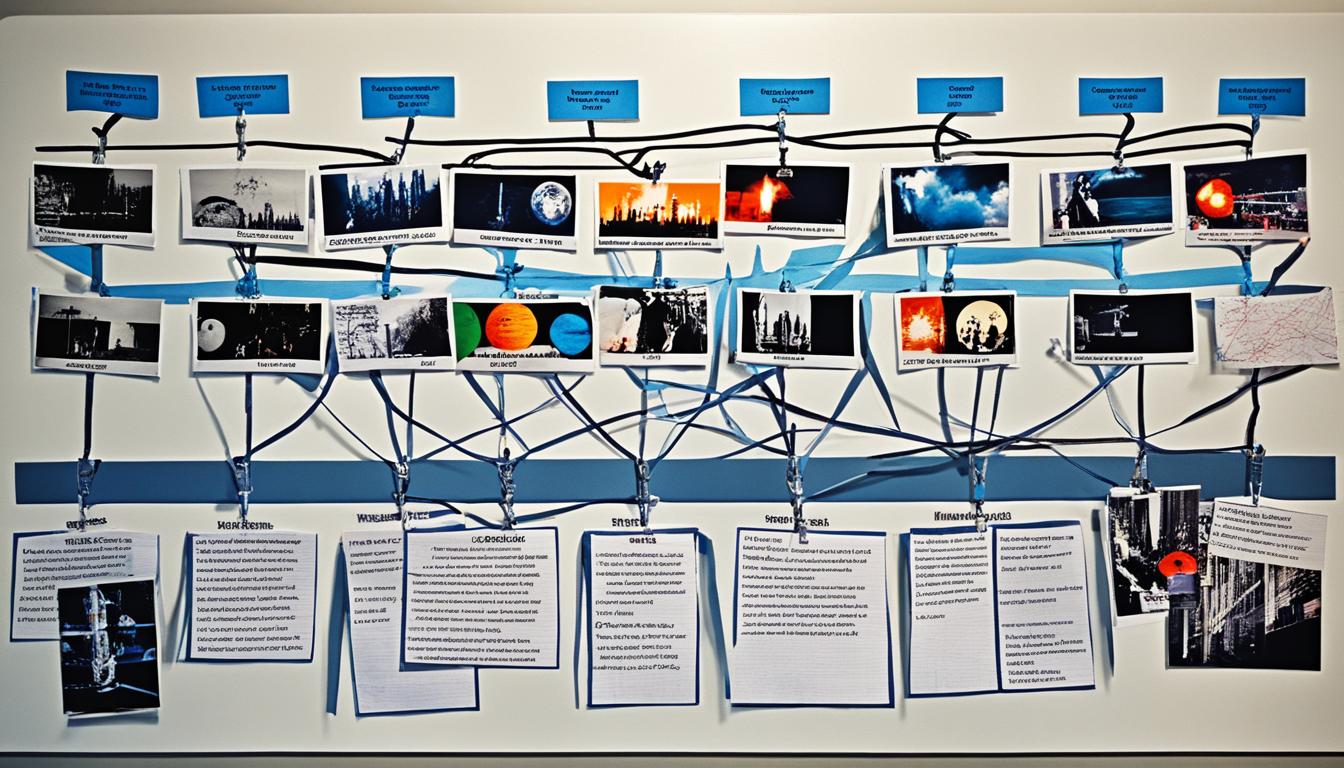Navigating personal relationships in today’s world can feel like navigating a minefield, with hidden dangers lurking beneath the surface.
When it comes to spotting and steering clear of narcissists, there are key strategies that can help us safeguard our emotional well-being and protect ourselves from potential harm.
By understanding the subtle signs and behaviors associated with narcissistic personality traits, we can equip ourselves with the tools needed to navigate these complex dynamics effectively.
Recognizing Narcissistic Traits
Recognizing narcissistic traits involves identifying key behaviors that signal an individual’s self-centeredness and lack of empathy towards others. When dealing with someone showing signs of narcissistic tendencies, it’s crucial to trust your instincts and acknowledge the warning signs early on. A narcissist often possesses an inflated sense of self-importance and a deep craving for excessive attention and admiration, while displaying a notable lack of empathy for those around them. Initially charming and charismatic, their self-centered behavior gradually becomes more evident over time.
In a relationship with someone exhibiting narcissistic personality traits, setting clear boundaries is essential to protect yourself from potential Narcissistic Abuse. It’s important to understand that trying to change a narcissist or engaging in power struggles is likely to lead to frustration and manipulation. Seeking support from trusted individuals or mental health professionals can provide guidance on how to navigate and cope with the challenges of dealing with a narcissist effectively.
Understanding Red Flags

When assessing individuals for potential narcissistic traits, it’s crucial to be vigilant for subtle yet telling red flags that may indicate self-centered and manipulative behaviors.
It’s important to pay attention to signs of excessive self-importance and a grandiose sense of superiority in someone with narcissistic personality disorder (NPD).
Be cautious of individuals who constantly seek admiration and praise while showing a lack of empathy towards others.
Manipulative behaviors like guilt-tripping, gaslighting, and playing the victim are key red flags to watch out for.
Moreover, a lack of accountability for one’s actions and a pattern of refusing to take responsibility can also be indicative of narcissistic tendencies.
Trust your instincts and be mindful of any feelings of discomfort or unease in the relationship, especially if there are signs of entitlement or a disregard for boundaries.
Recognizing these red flags early on can be helpful to seek support and deal with narcissistic individuals who may cause comorbid psychological distress.
Establishing Healthy Boundaries
Establishing healthy boundaries with a narcissist requires clear communication and unwavering consistency in enforcing those boundaries. When dealing with someone who has narcissistic personality disorder and lacks empathy, it’s crucial to prioritize your well-being. Here are some practical tips for dealing with a narcissist and safeguarding your emotional energy:
| Tips for Dealing | Description |
|---|---|
| Clearly define your personal boundaries and communicate them assertively to the narcissist. | Setting clear limits is essential in managing interactions with a narcissist. |
| Learn to say ‘no’ without feeling guilty or obligated to comply with the narcissist’s demands. | Establishing boundaries means knowing when to prioritize your needs over the narcissist’s wants. |
| Limit your exposure to the narcissist by setting time limits or creating physical distance when necessary. | Protect yourself from psychological distress and life-limiting interactions by controlling your level of engagement. |
| Develop a support system of trusted friends or professionals who can provide guidance and validation when dealing with the narcissist. | Having a support network can help you navigate challenging situations and maintain your boundaries. |
| Practice self-care and prioritize your own well-being, recognizing that you have the right to protect yourself from the narcissist’s manipulative behaviors. | Investing in self-care is crucial in preserving your emotional well-being and setting limits to safeguard your mental health. |
Establishing healthy boundaries is a crucial aspect of managing relationships with narcissistic individuals. Remember, if you find it challenging to set or maintain boundaries, seeking professional help or joining support groups can provide additional guidance and assistance.
Prioritizing Self-Care

To ensure your well-being remains a top priority amidst interactions with a narcissist, shifting the focus towards prioritizing self-care becomes essential. Taking time for yourself daily is crucial for maintaining mental health. Engaging in activities that bring joy and relaxation can help counter the emotional toll of dealing with a narcissistic individual.
Setting boundaries is an important first step in protecting your emotional well-being from being exploited. Practicing mindfulness and self-compassion are key components of nurturing your mental health in the face of narcissistic characteristics.
Seeking professional help, such as therapy or counseling, is important for gaining guidance in prioritizing self-care. Building a supportive network of friends and family who uplift and validate you can provide an additional layer of emotional support.
Educating yourself about narcissism and its traits can aid in understanding their behaviors, allowing you to protect yourself more effectively. Remember, prioritizing self-care isn’t selfish; it’s crucial for maintaining your emotional and mental health when dealing with narcissistic individuals.
Seeking Professional Guidance
Considering the complexities of navigating relationships with narcissists, seeking professional guidance from a therapist or counselor experienced in dealing with narcissistic personality disorder is a proactive step towards safeguarding your mental and emotional well-being. When dealing with individuals exhibiting narcissistic characteristics, it’s crucial to recognize the need for someone who understands the intricacies of this personality disorder.
People with narcissistic traits often present unique challenges in relationships, making it essential to seek guidance from a professional well-versed in the Diagnostic and Statistical Manual’s criteria for narcissistic personality disorder. In a clinical health psychology practice, therapists can offer tailored strategies to help you cope with the challenges posed by narcissistic individuals and assist in setting necessary boundaries.
It’s important to remember that seeking professional help isn’t a sign of weakness but rather a proactive measure to support your well-being in the face of such complex interpersonal dynamics.
Frequently Asked Questions
How Do You Repel a Narcissist?
Setting boundaries is crucial. We enforce them consistently to protect ourselves. Prioritizing self-care and well-being is key. Avoiding confrontations with narcissists is wise. Educating ourselves about their behaviors helps us recognize and respond effectively.
Building a strong support system is essential during tough times. Understanding narcissistic tactics aids in repelling them. Staying away from narcissists whenever possible is a proactive step. Protecting ourselves by setting clear expectations is empowering. Seeking help from trusted individuals or professionals is beneficial.
How Do You Handle a Narcissist Successfully?
When handling a narcissist successfully, it’s crucial to set clear boundaries, prioritize self-care, seek support, educate ourselves, and practice effective communication skills.
Understanding their behaviors and tactics is key. We can adapt our strategies when dealing with narcissists in positions of power and ensure we protect ourselves from being manipulated.
Trusting friends or professionals can provide support, and focusing on self-care helps us avoid negative impacts.
How Do You Outsmart a Narcissist?
We can outsmart a narcissist by understanding their tactics and not engaging in their manipulative games.
It’s crucial to maintain our boundaries firmly and communicate assertively.
By staying calm and composed, we can avoid being emotionally drained by their behavior.
Seeking support from trusted individuals is vital in navigating relationships with narcissists.
How Do You Protect Yourself From a Narcissist?
We protect ourselves from a narcissist by educating ourselves on narcissistic traits and behaviors, setting clear boundaries, prioritizing self-care, managing stress effectively, seeking guidance from professionals, and surrounding ourselves with supportive individuals.
Recognizing the signs, enforcing boundaries, and practicing self-care are key strategies to safeguard our well-being and prevent manipulation.
Seeking help when needed and maintaining a strong support system are essential in navigating relationships with narcissists.
Conclusion
In navigating relationships, we must be vigilant in recognizing red flags and setting boundaries to protect ourselves from narcissists. Just as we wouldn’t willingly swim in shark-infested waters, we must guard against those who seek to manipulate and harm us.
By prioritizing self-care and seeking guidance, we can navigate these treacherous waters with confidence and resilience. Remember, we hold the power to choose who we allow into our lives – let’s choose wisely.










